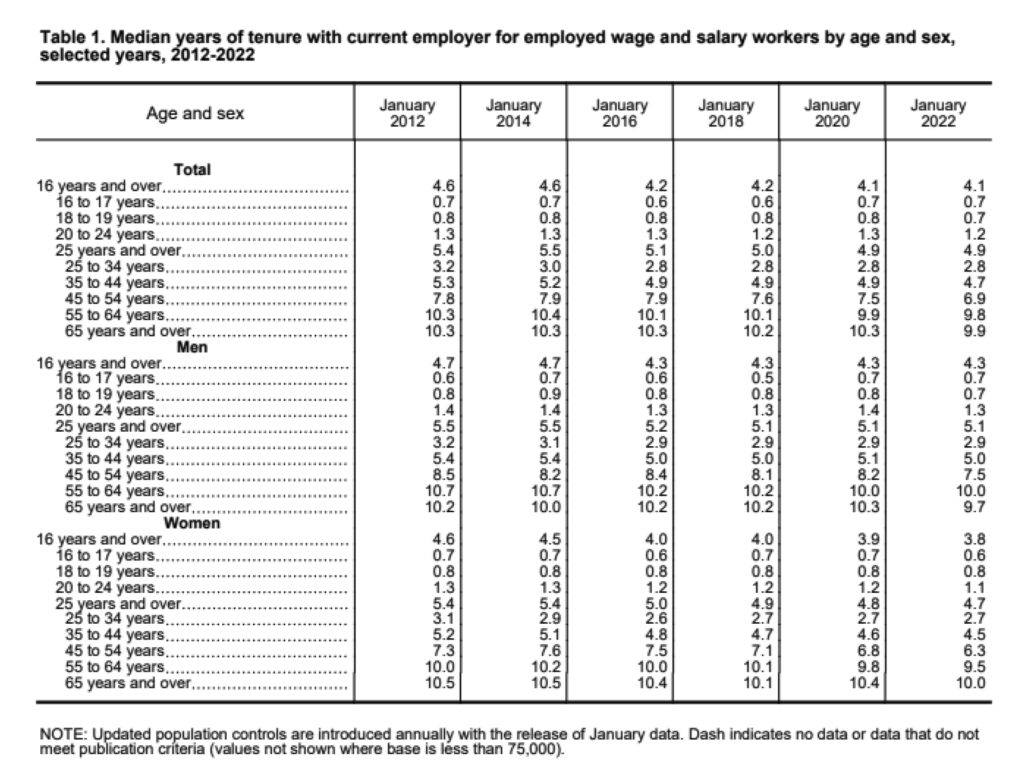
The Advantages of Tenure in the Workplace
Imagine tapping into a reservoir of knowledge, a treasury of proven experience, and a web of well-established relationships — that’s what you do when you engage with companies boasting a rich history of employee tenure. Tenure, the golden emblem of loyalty and long-standing employment, is not just a feather in an employee’s cap but also a testament to a company’s stability, efficiency, and strength. An array of advantages accompany such companies, such as keen expertise, operational effectiveness, deep-seated networks, and valuable institutional memory — all of which come together to forge robust business alliances. As we dive deeper into the concept of tenure, we will explore how aligning with companies that value and retain their long-term employees can create mutual advantages and drive collective business success.
Expertise and Industry Knowledge
Companies with long-term employees often have a wealth of expertise and industry knowledge. These employees have accumulated years of experience, honed their skills, and have a deep understanding of the company and its goals. This expertise can be leveraged when collaborating with other businesses to provide valuable insights, solve complex problems, and contribute to innovative solutions.
Stability and Reliability
Long-term employees contribute to the stability and reliability of a company. Their extended tenure demonstrates loyalty, commitment, and a proven track record of consistently delivering results. For business partners, this stability translates into reduced risks and increased confidence in the company’s ability to fulfill its commitments. Long-term employees often possess solid institutional knowledge, enabling them to navigate challenges, maintain business continuity, and provide a dependable foundation for collaborative endeavors.
Established Networks and Relationships
Employees who have spent significant time in a company develop extensive networks and relationships within the industry. These connections can be invaluable when forging partnerships or seeking opportunities for business growth. Companies with long-term employees can leverage these networks to facilitate introductions, establish strategic alliances, and access a broader range of resources. These existing relationships can significantly enhance the partner’s market reach, influence, and potential for success.
Efficient and Streamlined Operations
Long-term employees are often highly efficient and familiar with the company’s processes and workflows. Their extensive experience allows them to easily navigate internal systems, procedures, and hierarchies. This efficiency translates into smoother interactions, streamlined communication, and effective project management when collaborating with external partners. The expertise of long-term employees enables the company to optimize its operations, leading to improved productivity and timely deliverables.
Institutional Memory and Learning
Companies benefit from the institutional memory held by long-term employees. They possess in-depth knowledge of the company’s history, culture, values, and lessons learned from past experiences. This institutional memory helps businesses avoid repeating past mistakes, capitalize on successful strategies, and foster continuous learning and improvement. By partnering with companies that value and retain long-term employees, business partners access this accumulated wisdom, contributing to better decision-making and long-term success.
Several factors contribute to employees staying at their job for an extended period. These can include –
- Job Satisfaction: When employees find fulfillment, meaning, and enjoyment in their work, they are more likely to stay with their current employer. Factors such as challenging and meaningful assignments, opportunities for growth and development, a positive work environment, and a supportive company culture all contribute to job satisfaction.
- Compensation and Benefits: Competitive salaries, comprehensive benefits packages, and attractive incentives play a significant role in employee retention. Employees who feel fairly compensated for their contributions are likelier to remain loyal to their organization.
- Work-Life Balance: Maintaining a healthy work-life balance is crucial for employees’ well-being. Organizations prioritizing work-life balance through flexible work arrangements, family-friendly policies, and supportive work environments tend to have higher employee retention rates.
- Opportunities for Advancement: Employees are more likely to stay with an employer if they see opportunities for career growth and advancement within the organization. Clear career paths, mentorship programs, training opportunities, and promotion from within can foster loyalty and long-term commitment.
- Job Security: Job security is a significant factor in employee retention. When employees feel secure in their positions and believe their contributions are valued, they are likelier to stay with their current employer.
- Strong Leadership and Supportive Management: Effective leadership and supportive management are crucial in employee retention. When employees have confidence in their leaders, feel supported, and have open lines of communication, they are more likely to stay with the organization.
- Organizational Culture: A positive and inclusive organizational culture that aligns with employees’ values and fosters a sense of belonging contributes to employee retention. Employees who feel connected to the organization’s mission, vision, and values are more likely to stay long-term.
- Work Relationships: Positive relationships with colleagues and managers can enhance job satisfaction and employee retention. Creating a supportive and collaborative work environment where employees feel respected, valued, and have strong interpersonal connections can increase their commitment to staying with the organization.
It’s important to note that these factors can vary from person to person, and employees may have different priorities and motivations for staying in their jobs. Creating a positive work environment that addresses these factors can significantly contribute to employee retention and long-term commitment.
The U.S. Bureau of Labor Statistics reports that In January 2022, median employee tenure (the point at which half of all workers had more tenure and half had less tenure) for men held at 4.3 years. For women, the median tenure was 3.8 years. Among men, 28 percent of wage and salary workers had 10 years or more of tenure with their current employer in January 2022, higher than the women at 26 percent. Median employee tenure was generally higher among older workers than younger ones. For example, the median tenure of workers ages 55 to 64 (9.8 years) was more than three times that of workers ages 25 to 34 (2.8 years)—also, a larger proportion of older workers than younger workers had 10 years or more of tenure. For example, among workers ages 60 to 64, 53 percent had been employed for at least 10 years with their current employer in January 2022.
Younger workers were more likely than older workers to be short-tenured employees. For example, in January 2022, about 79 percent of 16- to 19-year-olds had 12 months or less tenure with their current employer, compared with about 12 percent of workers ages 55 to 64. The table below shows the median years of tenure from 2012 – 2022.

Having long-time employees can be highly beneficial for businesses for several reasons. Hiring and training new employees can be expensive and time-consuming. Long-time employees with specialized knowledge and skills are more efficient in their roles, requiring less supervision and training. Retaining experienced employees reduces recruitment costs, onboarding expenses, and the potential productivity dip associated with new hires. In addition, employees who have been with the organization for a long time are more likely to have a strong sense of dedication and loyalty toward the company. They are invested in its success and are more inclined to go the extra mile to achieve positive outcomes. This loyalty can translate into increased employee engagement, higher morale, and reduced turnover.
In Conclusion
While having long-time employees offers numerous advantages, businesses should also strike a balance between experienced employees and fresh perspectives. Embracing a diverse workforce with a mix of long-term and new talent can help drive innovation, creativity, and adaptability within the organization.
